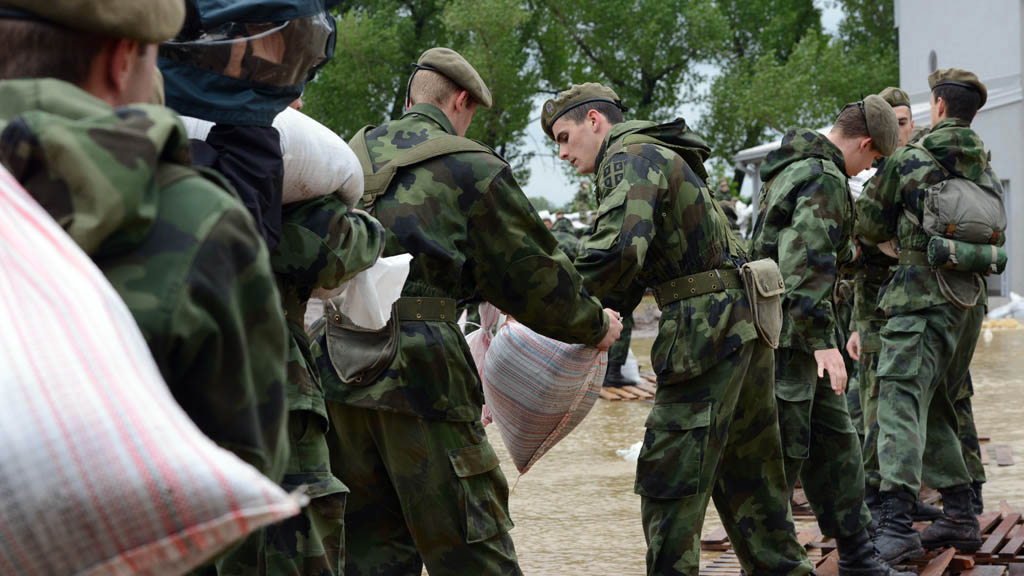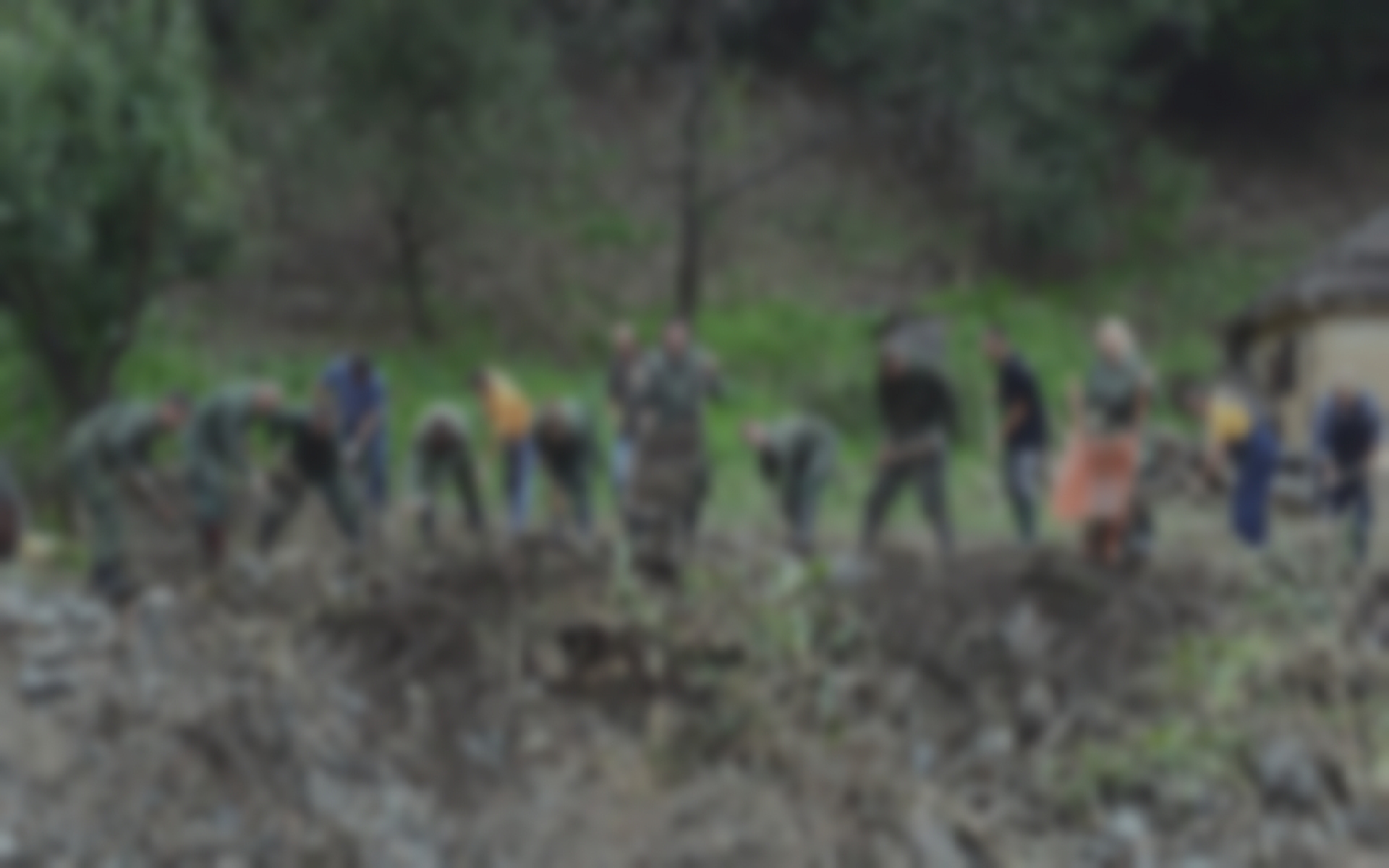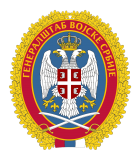CIMIC in the Serbian Armed Forces
Following the changes in the operational environment, the SAF developed CIMIC function to support command and to adapt its capabilities to the new security and military challenges.

Unlike most armed forces from developed countries which apply civil-military cooperation only in multinational operations, the CIMIC function in the SAF can be applied in all three missions defined by the Defence Strategy of the Republic of Serbia. It means that the function does not relate only to CIMIC tasks associated with the defence of the country from external threats, but also to the support of the civil society in countering security threats.
The operational success rate significantly increases if the military goals match the goals of the host nation community. The conditions under which the armed forces perform their activities constitute their operational environment. In order to plan the force engagement in an operation, the CIMIC leaders develop proposals for activities within their competence, based on observed conditions and evaluation of the civil society factors: population, authorities, businesses, international organizations, NGOs, religious organizations and movements.
CIMIC implies cooperation and coordination of joint engagement of military forces and civil society actors which, in a certain area and with required resources, contribute to the mission accomplishment of the units in peacetime, emergencies and war.
CIMIC is achieved by establishing and maintaining the civil-military liaison, command support and operational environment support.
Establishment and maintenance of the civil-military liaison is a part of CIMIC scope which enables the armed forces and civil society representatives to establish contact. CIMIC elements establish and maintain civil-military liaison with all relevant civil authorities important for the execution of tasks in the assigned area of operation/mission or on the territory of their functional responsibility. Success in establishing and maintaining civil-military liaison is achieved by adequate and timely distribution of information on CIMIC achievements to the public. Successfully established liaison also serves to gain trust and support from the people and various organizations working in the area of responsibility in multinational operations. Properly developed civil-military liaison is an essential prerequisite for the success of CIMIC in all operations and it provides the basis for the implementation of the other two CIMIC elements.
Support to command is achieved through (1) assessment of the operational environment by CIMIC elements and proposal for the Serbian Armed Forces resources allocation for CIMIC activities in the area of responsibility (AOR) of the unit, and (2) coordination of joint engagement with civilian actors for shared use of available resources. Coordination of the deployment of civil and military resources enables the reduction of excessive and unplanned use of military resources.
Support to the civil society means engaging the Serbian Armed Forces capabilities for the needs of civilian actors when other forces, means of protection and rescue systems are not sufficient to protect people, material and cultural resources and the environment from disasters and other emergencies, which is decided in accordance with respective competences. Providing support to the civil society is usually performed at the request of the civil society authorities. The initiators of support may be commands and units of the Serbian Armed Forces in accordance with their plans and capabilities. The support is provided by the unit itself or in cooperation with other civil society institutions. Various military resources are engaged: providing information, human and material resources, training capabilities, military expertise in various fields and other resources in accordance with the specific CIMIC activity. In multinational operations, this support is usually implemented in the form of CIMIC unit project or the SAF personnel engaged as task forces in the operation (doctors, veterinarians, engineers and other specialists that perform their activities on behalf of the Serbian Armed Forces, for the needs of the mission).
Civil-military cooperation in the Serbian Armed Forces is organized at the strategic, operational and tactical level to the brigade level. Depending on the unit tasks and types of operations performed by the SAF, CIMIC can be organized at the battalion level as well.
Taking into account international experience and the national environment, following the introduction of the civil-military cooperation function in the Serbian Armed Forces, the CIMIC Office was designed and established as a model of the practical application of CIMIC in daily operations of the Serbian Armed Forces.
The Office is fully compatible with CIMIC Centres of contemporary armed forces engaged in multinational operations. Since the decision was to establish the Centre on the national territory, it was more appropriate to name it the CIMIC Office rather than CIMIC Centre.
Many years of constant presence of the Serbian Armed Forces personnel in the Ground Safety Zone, multi-ethnic and multi-national population, the presence of non-governmental and governmental international and national organizations, as well as the presence of KFOR were decisive factors for the CIMIC Office project. This environment provides proper conditions for CIMIC.
With the assistance of the Norwegian and the Dutch Governments, on July 12, 2007 the CIMIC Office started to work in the 4th Army Brigade in the garrison of Vranje. It created the opportunity to apply CIMIC knowledge gained on courses, exercises and other types of training at home and abroad in daily activities and in the field.
The Office has become a key point of cooperation, coordination, discussions and information exchange with the civilians. It has improved relations between the military and civilian sectors and promoted confidence building. Apart from the CIMIC Office in Vranje, which is the model of the CIMIC Centre located in the barracks, the CIMIC Office “in the field” was established in Kraljevo on September 9, 2008, which is the model of the CIMIC Centre outside barracks like the CIMIC centres of contemporary armed forces during deployment in multinational operations?
CIMIC Offices in the SAF commands and units have had very good results in implementing the CIMIC functions. They are also the places where the officers train for appointments to CIMIC positions in the Serbian Armed Forces.
The operational success rate significantly increases if the military goals match the goals of the host nation community. The conditions under which the armed forces perform their activities constitute their operational environment. In order to plan the force engagement in an operation, the CIMIC leaders develop proposals for activities within their competence, based on observed conditions and evaluation of the civil society factors: population, authorities, businesses, international organizations, NGOs, religious organizations and movements.
CIMIC implies cooperation and coordination of joint engagement of military forces and civil society actors which, in a certain area and with required resources, contribute to the mission accomplishment of the units in peacetime, emergencies and war.
CIMIC is achieved by establishing and maintaining the civil-military liaison, command support and operational environment support.
Establishment and maintenance of the civil-military liaison is a part of CIMIC scope which enables the armed forces and civil society representatives to establish contact. CIMIC elements establish and maintain civil-military liaison with all relevant civil authorities important for the execution of tasks in the assigned area of operation/mission or on the territory of their functional responsibility. Success in establishing and maintaining civil-military liaison is achieved by adequate and timely distribution of information on CIMIC achievements to the public. Successfully established liaison also serves to gain trust and support from the people and various organizations working in the area of responsibility in multinational operations. Properly developed civil-military liaison is an essential prerequisite for the success of CIMIC in all operations and it provides the basis for the implementation of the other two CIMIC elements.
Support to command is achieved through (1) assessment of the operational environment by CIMIC elements and proposal for the Serbian Armed Forces resources allocation for CIMIC activities in the area of responsibility (AOR) of the unit, and (2) coordination of joint engagement with civilian actors for shared use of available resources. Coordination of the deployment of civil and military resources enables the reduction of excessive and unplanned use of military resources.
Support to the civil society means engaging the Serbian Armed Forces capabilities for the needs of civilian actors when other forces, means of protection and rescue systems are not sufficient to protect people, material and cultural resources and the environment from disasters and other emergencies, which is decided in accordance with respective competences. Providing support to the civil society is usually performed at the request of the civil society authorities. The initiators of support may be commands and units of the Serbian Armed Forces in accordance with their plans and capabilities. The support is provided by the unit itself or in cooperation with other civil society institutions. Various military resources are engaged: providing information, human and material resources, training capabilities, military expertise in various fields and other resources in accordance with the specific CIMIC activity. In multinational operations, this support is usually implemented in the form of CIMIC unit project or the SAF personnel engaged as task forces in the operation (doctors, veterinarians, engineers and other specialists that perform their activities on behalf of the Serbian Armed Forces, for the needs of the mission).
Civil-military cooperation in the Serbian Armed Forces is organized at the strategic, operational and tactical level to the brigade level. Depending on the unit tasks and types of operations performed by the SAF, CIMIC can be organized at the battalion level as well.
CIMIC Office
Taking into account international experience and the national environment, following the introduction of the civil-military cooperation function in the Serbian Armed Forces, the CIMIC Office was designed and established as a model of the practical application of CIMIC in daily operations of the Serbian Armed Forces.
The Office is fully compatible with CIMIC Centres of contemporary armed forces engaged in multinational operations. Since the decision was to establish the Centre on the national territory, it was more appropriate to name it the CIMIC Office rather than CIMIC Centre.
Many years of constant presence of the Serbian Armed Forces personnel in the Ground Safety Zone, multi-ethnic and multi-national population, the presence of non-governmental and governmental international and national organizations, as well as the presence of KFOR were decisive factors for the CIMIC Office project. This environment provides proper conditions for CIMIC.
With the assistance of the Norwegian and the Dutch Governments, on July 12, 2007 the CIMIC Office started to work in the 4th Army Brigade in the garrison of Vranje. It created the opportunity to apply CIMIC knowledge gained on courses, exercises and other types of training at home and abroad in daily activities and in the field.
The Office has become a key point of cooperation, coordination, discussions and information exchange with the civilians. It has improved relations between the military and civilian sectors and promoted confidence building. Apart from the CIMIC Office in Vranje, which is the model of the CIMIC Centre located in the barracks, the CIMIC Office “in the field” was established in Kraljevo on September 9, 2008, which is the model of the CIMIC Centre outside barracks like the CIMIC centres of contemporary armed forces during deployment in multinational operations?
CIMIC Offices in the SAF commands and units have had very good results in implementing the CIMIC functions. They are also the places where the officers train for appointments to CIMIC positions in the Serbian Armed Forces.


